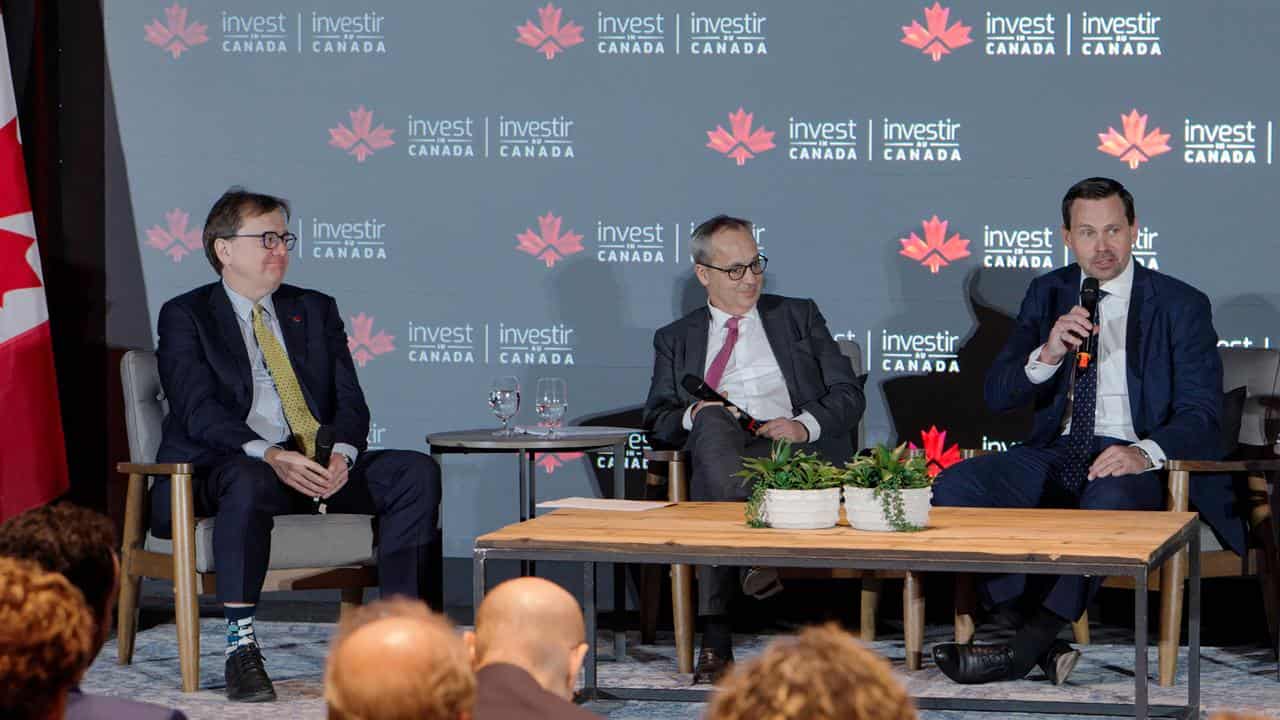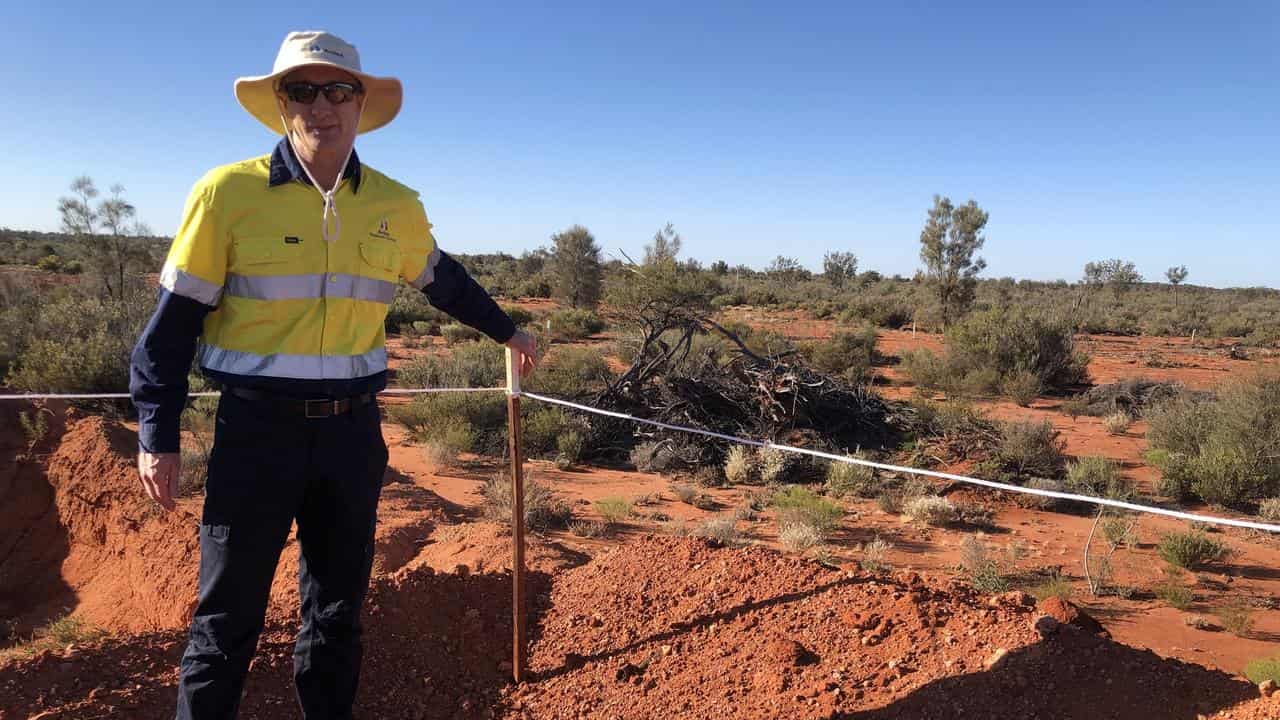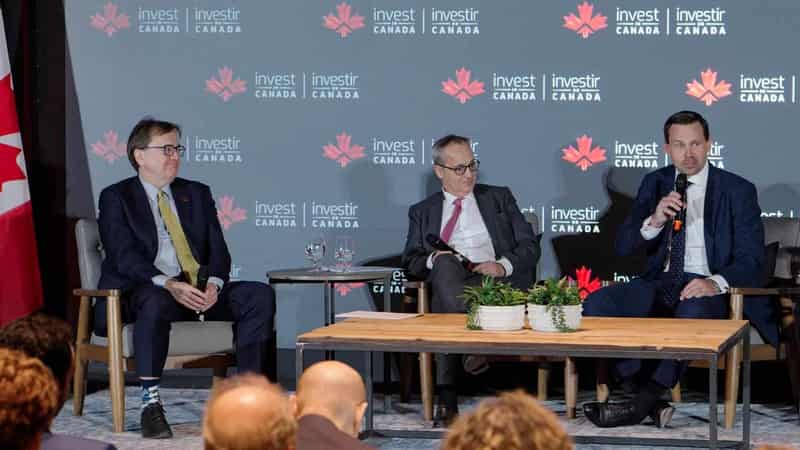
Imagine being able to know the source of every nut, bolt and panel in an electric car or rooftop solar to choose best-practice Aussie production over forced labour or environmental harm.
Australia may be a top source of many critical minerals and rare earths but China has a stranglehold on factory-ready materials and is bankrolling Indonesia to flood the market with cheap nickel.
Nor are car makers or energy manufacturers likely to pay over the odds for supplies and components without a carrot or stick to make them do it.
Facing job losses at home, Resources Minister Madeleine King went to North America to spruik the idea of a market premium for materials sourced from countries with higher environmental and workforce standards.
"Australia’s resources are mined and processed to the highest standards - making them the cleanest and greenest in the world," she told the Prospectors and Developers Association of Canada Convention in Toronto, Canada.
"Our geology means that we are home to globally significant deposits of minerals, these minerals will be crucial as the world turns to renewable technologies to decarbonise," she said.
As the two resources giants of the west, Australia and Canada have common ambitions for extraction, processing and refining.
BHP chief commercial officer Rag Udd flanked Canada's Minister of Energy and Natural Resources Jonathan Wilkinson and Rio Tinto's aluminium boss Jerome Pecresse on the "invest in Canada" panel at the Toronto mining convention.
While considering the closure of loss-making nickel operations in Australia, BHP's $C14 billion investment in the Jansen potash project in Saskatchewan is the largest in the company's history.
"Capital will flow to stable fiscal and regulatory environments and today this is a major competitive advantage for Canada," Mr Udd said.
After talks with Mr Wilkinson, Ms King said the two countries had agreed to work together for strong environmental, social and governance (ESG) standards in critical minerals markets.
Ms King said they want robust credentials to be built into global supply chains and plan to drive "transparent and traceable" supply chains.
"Prices paid for Australian minerals need to recognise the high ESG standards the Australian industry adheres to and the fact that Australian workers enjoy good working conditions and the highest safety standards," she said.
Groundbreaking research of 60 ASX-listed companies, including Australia's biggest miners, shows compelling financial advantages for those adopting sustainable business practices.
The study, by analytics firm League of Scholars, of the member companies of the United Nations Global Compact Network - the world's largest sustainability initiative - found a five per cent annual premium on returns compared to non-members.
"Investors have known this for some time – expectations of longer-term returns are a key driver of the growth of the responsible investment market," Responsible Investment Association Australasia CEO Estelle Parker said
"Consideration of ESG risk has become a health check as investors decide which companies to invest in, and they want their companies to do well on issues like climate, human rights, and nature protection," she said.
Andrew Penkethman, chief executive of Ardea Resources, confirmed Australia's mineral production "leads the world" in ESG credentials because of high operating standards.
But having no premium has created an advantage for mineral producers who do not meet the same level of standards in critical areas such as environment, stakeholder engagement, respect and employee wellbeing, he told AAP.
"Minister King’s work in this area is a good initiative, which is appreciated," he said.

"If a premium could be realised for nickel-cobalt production that meets the high ESG standards expected by society, it would assist Australian producers, and in particular the Kalgoorlie Nickel Project Goongarrie Hub," he said.
Ardea is working with a Japanese consortium of Sumitomo Metal Mining and Mitsubishi Corporation to develop the hub in the Goldfields region of Western Australia.
Taxpayer-funded production credits are also in the works for WA's struggling nickel producers, with Ms King under pressure in her home state.
"A production tax credit is a worthy initiative as it will help incentivise additional mineral production and processing within Australia, that may otherwise not have been developed," Mr Penkethman.
Any initiative within Australia to make our mineral processing industries more cost-competitive are expected to be well regarded by the Japanese consortium, he said.
"We have to always consider that capital is mobile and will tend to be deployed where the investors can secure the minerals they require," he said.
"Japan has been a massive enabler and supporter of the Australian resources sector and assisted in developing our iron ore and gas sectors, with all Australians benefiting from the revenue generated from these projects," he added.
Geoscience data is also critical to understanding what Australia is made of and attracting new investment.
Ms King also launched the Geoscience agency's Australia’s Identified Mineral Resources (AIMR) report, which draws on more than four decades of data.
Australia ranks number one for economic resources of gold, iron ore, lead, nickel, rutile, uranium, zinc and zircon.
The country was also the world’s largest producer of lithium (52 per cent of the global total), with production up 36 per cent to a record 75 kilotonnes, and remained the largest producer of the aluminium ore bauxite.
Uranium production was up 20 per cent and has potential for further growth as a reliable supply for nuclear power reactors elsewhere.









